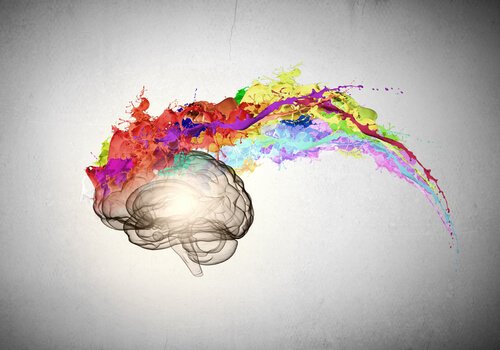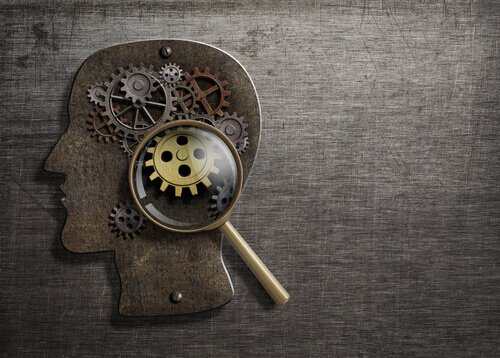From Soul Science to Behavioral Science

These days, we talk about psychology as a behavioral science. However, etymologically, psychology means the science of the soul. In this article, we’re going to see how the concept of psychology has evolved over the centuries.
The concept and objective of psychology have been changing over time. Its methodology has also evolved, as well as the relationship between the specialist and the patient. Psychology now encompasses a wide variety of schools of thought, interpretations, specializations, etc. That variety means that the definition and the focal point have changed and evolved as well.
The academic and clinical discipline of psychology has become “very medicalized”. Consequently, these days it tends to focus on pathologies. However, for centuries, the study of our inner mental life was the study of our souls. The science of psychology studied who you were and your deepest essence.
Psychology is so much more than behavioral science.
Psychology: From soul science to mental health science
The term psychology comes from the Greek words psyche (soul, understood in the classic sense as what gives a body life) and logos (knowledge, science, or study). In other words, the etymological meaning of psychology is the science of the soul.

Psychology as the study of the human soul arose when humanity began to ask itself “meta” questions. In other words, humans began to ask questions about themselves and their own minds. In that sense, you can’t understand the beginnings of psychology without thinking about the history of philosophy. Nevertheless, when psychology started to look for a methodology other than introspection, the two separated definitively.
At the end of the nineteenth century, society changed the way it looked at psychology. It went from being a soul science or philosophy of the mind to being a science of the mind. Instead of focusing on spiritual problems, psychology began the empirical study of mental phenomena. That’s when we start to see the very first “laboratories” dedicated to psychological research.
During this time, William James (1842-1910) defined psychology as the science of the phenomena and conditions of the mind. This perspective of psychology focused above all on internal experiences of consciousness. In other words, the study of thoughts, feelings, and sensations.
Psychology: From a science of the mind to behavioral science
As you can see, from the end of the 19th-century people saw psychology as the science of the mind. Psychologists looked for information based on the conscious experiences of their patients in relation to responses to certain stimuli.
But in the first half of the twentieth century, the concept of psychology changed. From then on, psychology was considered a behavioral science. It changed because behaviorist psychologists at the time argued that you can’t observe thoughts and feelings. They said that the only thing you can observe is how external stimuli affected humans’ external behavior. No one can directly observe feelings, thoughts, and sensations. Consequently, they couldn’t be the object of study.
Back to its roots: Psychology as a behavioral science
In spite of all that, in the 60s psychology started studying unconscious processes again. Cognitive psychology started to study the way in which the mind processes information. That meant a shift in the definition of psychology. Experts started to define it as a science of behavior and mental processes. At that time, the first information processing models appeared.

It’s worth pointing out that behavior and conduct are synonymous concepts. Although you can use them indistinctly in colloquial language, they have different nuances. Behavior refers to the way we exist in the world. This existing has two dimensions: an exterior dimension which we can observe and an inner dimension that’s intimate and private. Conduct has to do with exterior and observable behavior. To talk about inner behavior, psychology tends to use the term consciousness.
The current definition of psychology
Calling modern psychology the science of conduct and mental processes is correct. However, this definition is incomplete. Today, psychology goes much further than that because it seeks to explain how we feel, perceive, learn, communicate, and solve problems, among other things. Social influence and peer groups now occupy an important place in the field.
These days, the science of psychology attempts to explain, measure, and understand the nature of personality, motivation, and intelligence. It also seeks to understand the emotional and mental disturbances that affect human beings. Psychology concerns itself with personal and social issues, as well as individual differences and group differences.
Psychology’s object of study is much broader, and so is its definition. So, we can say that today’s psychology is the science that studies individual behavior and mental processes, including peoples’ internal processes and the influences of their physical and social environment.
These days, we talk about psychology as a behavioral science. However, etymologically, psychology means the science of the soul. In this article, we’re going to see how the concept of psychology has evolved over the centuries.
The concept and objective of psychology have been changing over time. Its methodology has also evolved, as well as the relationship between the specialist and the patient. Psychology now encompasses a wide variety of schools of thought, interpretations, specializations, etc. That variety means that the definition and the focal point have changed and evolved as well.
The academic and clinical discipline of psychology has become “very medicalized”. Consequently, these days it tends to focus on pathologies. However, for centuries, the study of our inner mental life was the study of our souls. The science of psychology studied who you were and your deepest essence.
Psychology is so much more than behavioral science.
Psychology: From soul science to mental health science
The term psychology comes from the Greek words psyche (soul, understood in the classic sense as what gives a body life) and logos (knowledge, science, or study). In other words, the etymological meaning of psychology is the science of the soul.

Psychology as the study of the human soul arose when humanity began to ask itself “meta” questions. In other words, humans began to ask questions about themselves and their own minds. In that sense, you can’t understand the beginnings of psychology without thinking about the history of philosophy. Nevertheless, when psychology started to look for a methodology other than introspection, the two separated definitively.
At the end of the nineteenth century, society changed the way it looked at psychology. It went from being a soul science or philosophy of the mind to being a science of the mind. Instead of focusing on spiritual problems, psychology began the empirical study of mental phenomena. That’s when we start to see the very first “laboratories” dedicated to psychological research.
During this time, William James (1842-1910) defined psychology as the science of the phenomena and conditions of the mind. This perspective of psychology focused above all on internal experiences of consciousness. In other words, the study of thoughts, feelings, and sensations.
Psychology: From a science of the mind to behavioral science
As you can see, from the end of the 19th-century people saw psychology as the science of the mind. Psychologists looked for information based on the conscious experiences of their patients in relation to responses to certain stimuli.
But in the first half of the twentieth century, the concept of psychology changed. From then on, psychology was considered a behavioral science. It changed because behaviorist psychologists at the time argued that you can’t observe thoughts and feelings. They said that the only thing you can observe is how external stimuli affected humans’ external behavior. No one can directly observe feelings, thoughts, and sensations. Consequently, they couldn’t be the object of study.
Back to its roots: Psychology as a behavioral science
In spite of all that, in the 60s psychology started studying unconscious processes again. Cognitive psychology started to study the way in which the mind processes information. That meant a shift in the definition of psychology. Experts started to define it as a science of behavior and mental processes. At that time, the first information processing models appeared.

It’s worth pointing out that behavior and conduct are synonymous concepts. Although you can use them indistinctly in colloquial language, they have different nuances. Behavior refers to the way we exist in the world. This existing has two dimensions: an exterior dimension which we can observe and an inner dimension that’s intimate and private. Conduct has to do with exterior and observable behavior. To talk about inner behavior, psychology tends to use the term consciousness.
The current definition of psychology
Calling modern psychology the science of conduct and mental processes is correct. However, this definition is incomplete. Today, psychology goes much further than that because it seeks to explain how we feel, perceive, learn, communicate, and solve problems, among other things. Social influence and peer groups now occupy an important place in the field.
These days, the science of psychology attempts to explain, measure, and understand the nature of personality, motivation, and intelligence. It also seeks to understand the emotional and mental disturbances that affect human beings. Psychology concerns itself with personal and social issues, as well as individual differences and group differences.
Psychology’s object of study is much broader, and so is its definition. So, we can say that today’s psychology is the science that studies individual behavior and mental processes, including peoples’ internal processes and the influences of their physical and social environment.
This text is provided for informational purposes only and does not replace consultation with a professional. If in doubt, consult your specialist.







